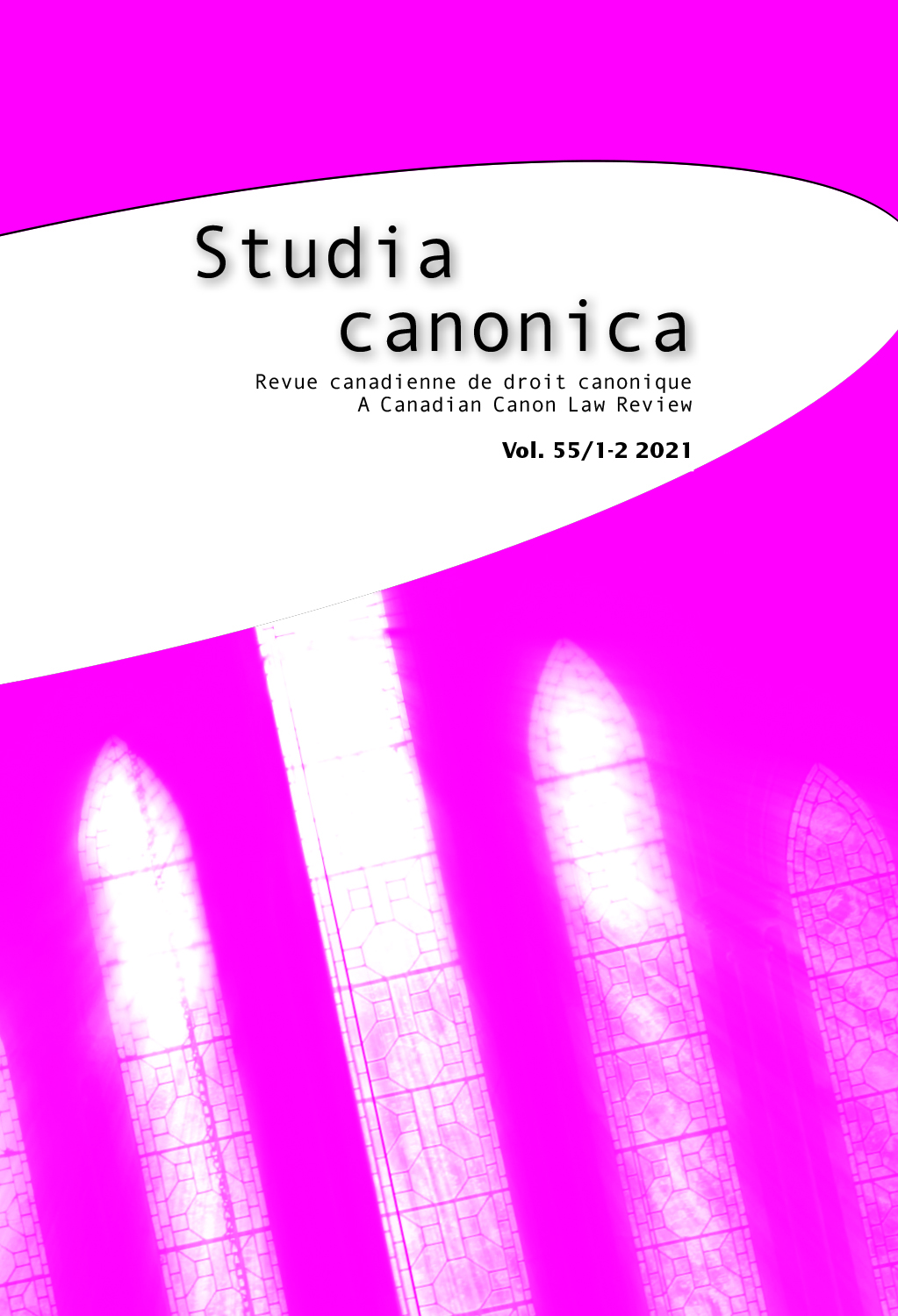 previous article in this issue previous article in this issue | next article in this issue  |

Preview first page |
Document Details : Title: The Latin Ordinaries for the Faithful of the Eastern Rites Subtitle: Genesis, Constitutional Positioning and Exposition of the Current Situation Author(s): GRASSMANN, Andreas E. Journal: Studia Canonica Volume: 51 Issue: 1 Date: 2017 Pages: 149-179 DOI: 10.2143/STC.51.1.3220894 Abstract : This study offers an overview on the legal institution of Latin ordinariates for the faithful of the Eastern Ecclesiae sui iuris. These ordinariates constitute a personal defined particular church unit of the Catholic Church. In a first section, the article evaluates the possibilities and existing manifestations of non-territorial structural elements within the hierarchical constitution of the Church in accordance with CIC/83 and CCEO, before in chapter two the focus of attention is laid on investigating especially the Latin ordinariates for the faithful of the Eastern Ecclesiae sui iuris. Then, the remaining five sections analyze the five currently existing Latin ordinariates for the faithful of the Easterrn Ecclesiae sui iuris in Poland, Argentina, Brazil, France and Austria, focusing on their historical development and the quality of the Latin ordinary’s potestas iurisdictionis. Cette étude donne un aperçu de l’institution juridique des ordinariats latins pour les fidèles des Églises orientales sui iuris. Ces ordinariats constituent une Église personnelle propre à l’Église catholique. L’article évalue tout d’abord les possibilités et les manifestations existantes des éléments structurels non-territoriaux au sein de la constitution hiérarchique de l’Église, conformément au CIC/83 et au CCEO, avant de poursuivre avec une étude de l’ordinariat latin pour les fidèles des Églises orientales sui iuris. L’article analyse ensuite les cinq ordinariats latins actuellement en vigueur pour les fidèles des Églises orientales sui iuris en Pologne, en Argentine, au Brésil, en France et en Autriche. L’accent sera mis sur leur développement historique et sur la qualité de la potestas iurisdictionis des ordinaires latins. |
|


